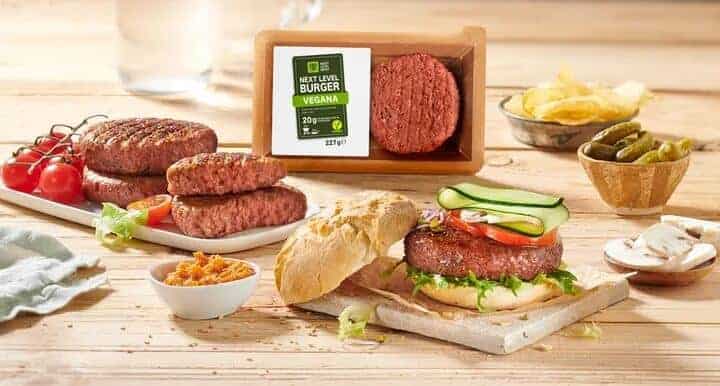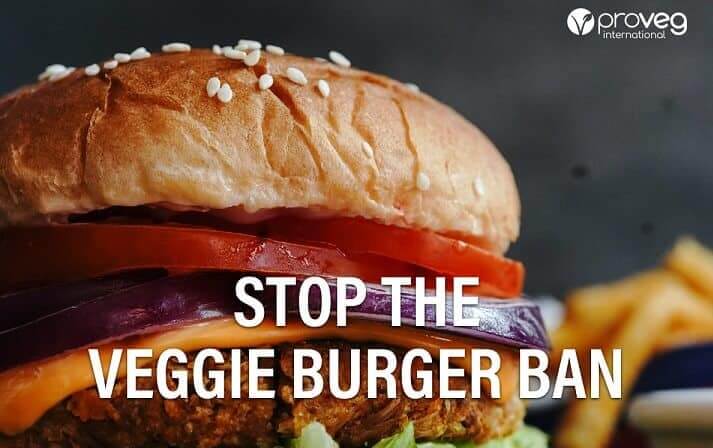ProVeg, the international organisation promoting a plant-based lifestyle worldwide, has published a report that gives 11 reasons why the plant-based food sector has been so successful in a year when many companies have suffered as a result of the global health crisis.
“This has been the year in which many food industry giants have decided to take the plant-based sector seriously and that is no coincidence”, says Cristina Rodrigo, Director of ProVeg Spain.
“Any idea that vegetable choices were just a fleeting trend in the kitchen or a fad that consumers were going to turn their backs on when things got tough has been completely eliminated by everything that has happened in the last twelve months”.
The following is ProVeg’s chosen list of eleven highlights that tell the story of this dynamic and innovative sector in 2020 (Naturally, the vegconomist team considers the number eleven among the most exciting…)

1. The boom in plant-based launches in Spain
The year was full of important product launches in major companies: Danet brought out its vegan custard, Findus presented its Green Cuisine range, Garden Gourmet launched Vuna (a vegetable alternative to tuna); Lidl expanded its range of vegetable meats, incorporated new ready-made dishes and included the vegetable cheese Vegan Feel, manufactured by García Baquero. Ikea also completed its dining room and take away offer with meatballs, Campofrío was launched with a 100% vegetable burger, Maheso launched its vegetable range Green Moments; in Aldi, we can already find the Wonder Burger and in Papa Johns, the vegetable pizza. At Rodilla they already have a 100% pasta salad which includes tofu. And, as if that were not enough, after the Rebel Whopper in 2019, this year Burger King extended its range in Spain with 100% vegetable nuggets.
2. The European Parliament rejects the ban on veggie burgers
When is a hamburger not a hamburger, and can it legitimately be called “sausage” if it is made from plants? This year the European Parliament voted on two amendments to ban terms such as “veggie burgers” and “yogurt alternative”. However, thanks to the efforts of organisations such as ProVeg, MEPs voted against the proposed ban on the terms for alternatives to meat. This is an important decision (in Spain supported by the meat industry) which protects the future of the plant-based sector and ensures that European consumers can continue to buy alternatives to meat in an intuitive and everyday way.
However, in the case of alternatives to dairy, the battle continues. Despite voting against a ban on the designation of vegetable-based burgers, MEPs supported further restrictions on the terms of dairy alternatives. All eyes are now on the EU’s national governments, who will have the opportunity to oppose the new restrictions during the negotiations on the Common Agricultural Policy in early 2021.

3. McDonald’s announces the McPlant range
The world’s largest fast-food chain is finally starting to adopt plant-based alternatives. After trials in several markets, McDonald’s revealed in November that it plans to launch a plant-based burger in 2021. This could be followed by additional vegetable products, including alternatives to chicken. Other fast-food chains have also taken the plant-based sector seriously in 2020.
Burger King partnered with Unilever’s Vegetarian Butcher brand to launch the ‘Rebel Whopper’ in the UK, as well as plant-based pies and nuggets in the UK, the Netherlands, and Germany. KFC Canada made its vegan ‘chicken’ sandwich a permanent menu item, while Pizza Hut made its vegan pizza a permanent menu item.
4. Impossible Foods raises $500 million in the midst of a pandemic
The pandemic has been a historic moment for the plant-based product sector. With health and sustainability in the spotlight, and well-documented outbreaks of coronaviruses occurring in meat factories, consumer interest in plant-based options has accelerated. As expected, investor interest has also grown, allowing Impossible Foods to raise a staggering $500 million in March in the midst of the coronavirus crisis, accelerating its growth plans and boosting distribution.
But Impossible Foods has not been alone. Across the industry, venture capital investments in plant proteins reached $1.1 billion through June alone, making 2020 a decisive year for plant-based market capitalisation, according to figures from the FAIRR network of investors.

5. Unilever sets an ambitious target for plant-based products
In November, Unilever committed to a sales target of $1 billion by 2027, which would mean five times the growth in the next seven years. It was one of several multinationals to set ambitious targets for sales of plant-based products. In September, Tesco, the UK’s largest supermarket chain, unveiled plans to increase sales of meat alternatives by 300% by 2025. The retailer also committed to improving the affordability of plant-based options.
6. The oat milk boom reaches new records
Oat milk has been the undisputed star of the plant-based sector in 2020. Thanks to its long shelf life and lack of refrigeration, it became a favourite with buyers during the pandemic. In the United States, demand was so high in the early days of the coronavirus outbreak that it exceeded the demand for hand sanitizer. By October, oats had overtaken soy to become the number two ingredient in US dairy alternatives (with almond milk in the first place).
Oat-based products have also taken off elsewhere: Oatly established operations in Singapore to meet growing demand in Asia, while retail sales of oat-based products in the UK have almost doubled year-on-year. Oats also appeared in dozens of new product launches, with Califia, Arla, Starbucks and Nestlé among the brands that have expanded their ranges with new oat-based options this year.

7. Candy giants add to plant-based change
2020 was the year when some of the world’s leading confectionery manufacturers began to pay close attention to the plant sector. In August, Lindt announced plans to launch a range of oat-based chocolate for the German market, while manufacturer Barry Callebaut announced a range of chocolate made with plants to meet growing consumer demand for dairy-free confectionery options. In Spain, Pink Albatross, Spain’s leading 100% vegan ice cream brand, closed its first round of financing with 550,000 Euros from Katjesgreenfood. In addition, Vclub, an Italian vegetable ice cream brand, reached the Consum and Aldi shelves.
8. Memphis Meats, pioneer of cultured meat, raises $161 million
Cultured meat has also made great strides in 2020. The year began with some great news: In January, Memphis Meats revealed it had secured $161 million in funding (its largest ever) to build a production facility, paving the way for a commercial deployment. In June, KFC announced its partnership with a Russian 3D bio-printing company to create cultured chicken nuggets; and in November, Israel’s SuperMeat opened The Chicken in Tel Aviv, a restaurant serving cultured chicken products to diners. In addition, by 2020 Singapore has become the first country in the world to approve the sale of cultured meat.

9. Beyond Meat builds factory in Shanghai
The demand for products has soared in China in the wake of the pandemic. Beyond Meat responded quickly and announced plans to build a new production plant near Shanghai. The investment marks the company’s biggest push in the Asian country to date. Production will begin in early 2021. It is not difficult to understand why global companies like Beyond Meat want to expand their presence in China. The country accounts for 27% of global meat consumption, according to Bloomberg, so the potential for alternatives to meat is huge. As such, local players are already stepping up their efforts.
In April, Chinese food technology company Starfield partnered with six restaurant chains. In September, Green Monday Holdings, the company behind OmniPork, the pork alternative, secured $70 million to expand its plant-based portfolio, while Dao Foods International announced plans to invest in 30 new companies to accelerate China’s plant-based sector.
10. 100% vegan menus arrive in University
Another of the milestones of the year was the agreement of the Pompeu Fabra University with the Menu for the Planet project, to offer a complete 100% vegetable menu every day in its dining room. Menú Por El Planeta, in collaboration with ProVeg Spain, is calling for the offer in the campus canteens to include a daily first course, a second course and a dessert of 100% vegetable origin as a measure of sustainability, ethics and health, at a price equal to or lower than the usual menu, so as not to pose any obstacles or financial difficulties for people who want to curb the climate crisis through their food. Menu for the Planet continues to collect signatures so that the initiative that the Pompeu Fabra University has already joined can be extended to the rest of the universities.

11.Vegconomist premieres in Spanish
Vegconomist, a globally relevant medium for the plant-based sector, was launched in Spain in mid-September. To date the Spanish platform has had around 12,000 unique visitors, most of whom have come from Spain, Mexico, the United States and Chile. The original vegconomist was launched in Berlin in 2018 by Peter Link, an expert in the field of journalism, public relations and marketing, followed by the English language Global version the same summer. The digital magazine, which specializes in economic and financial news related to the plant-based sector, is now also available in Chinese languages, bringing its reach to five languages in total.





